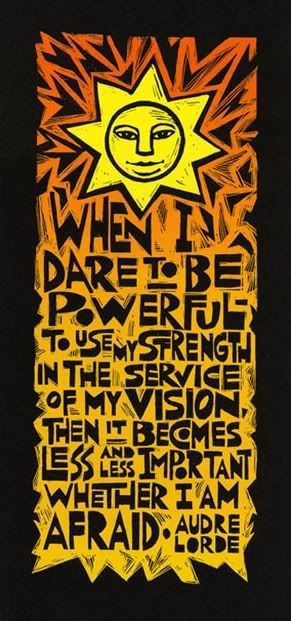Below is my comment reply to the post above, but you really should read the speech first:
“Many laugh at the insanity and impracticability of my dreams and I reply, who’s filter are we putting our dreams through? What origins and philosophies are we embracing and what are the consequences of those embraces?”
“The problem with accepting or embracing a position as immigrant is that it rests first, on the validity and longevity of the United States’ occupation and secondly, on the subjection of the People. Which begs the question, who are you giving the power of recognition to.”
“In order to survive we must know what beliefs and actions take us away from the inextricable relationship of the People and the Land.”
“If you relate based on looks you are driven by racializations. If you relate based on colonial languages (English, French, or Spanish) you may think you have alliances with those you do not, and vice versa. Those who speak or do not speak English, French, or Spanish are not necessarily friends, family or foe.”
Its so funny that you posted this. I’m glad you did. Lately since I’ve been in Rochester and outside of the Bay Area Radical Bubble, I’ve been reflecting on the need to challenge and reconceptualize how I think about social change. I’ve grown frustrated with “solutions” that sound more like reforms, or new ways to protect the power relationships that exist. I think it was Andrea Smith who stated that the core root of the Native struggle for freedom is the fact that, unlike (most) other “movements”, they question the legitimacy of the state. The more my thoughts around solutions to teaching in the U.S. stem from this idea of challenging the state (both as an institution and as the authoritative framework in identity development), the more people really “don’t get me”.
I believe we continue to walk blindly if we aren’t aware of how these watered down and destructive solutions are connected to our own personal identities and our limited ability to reflect and achieve a deeper level of decolonization. So lately, I’ve been sitting in this space asking myself, “ok what do I need to change about how I view myself and my thinking, in order to gain a clearer perspective, so that I may teach from that perspective- the one that is always working from the root of the problem: challenging colonization and Native land occupation.” At this point in my development process, I have to be honest, I cannot fathom what it will be like to teach in a truly radical way and to help incite a true struggle against the state. I’m at the point where it is easy to deconstruct and help others deconstruct, but what about the more challenging process of building up? A huge part of teaching is enabling students to feel like agents, so how do I empower students to move past deconstructing the issues and into acting upon those issues in ways that challenge the existence of the state? How is it possible for us to build if we have not connected to what freedom is? For many generations we have not known freedom, but Reid Gómez says “We have choices. Aligning ourselves with existing community members, neighboring community members, family histories, recipes and when and where whose archives fail we have the land itself.”
This quote was given in the context of struggle and to keep it in its context I ask myself what “existing community members, neighboring community members, family histories, recipes” within my own heritage actually threaten my own freedom and the freedom of others? And I ask this because I am aware that my own history, even as a woman of color with a history of U.S. antagonism against my people (as well as collaboration with the mis-leaders of my people), is tainted with false notions of identity and freedom. So I have to reflect and think about how I’m affected by this and how this reality may have limited my scope in imagining and constructing in my mind real oppositional approaches to colonization.




2 comments:
Tigera, thank you so much for your comment over at bfp's. I commented there (but don't think I added anything, I'm nearly incoherent on this stuff right now).
Anyway, thank you very very much for your comment over there (and here).
And also in my comment at bfp's I didn't write Tigera correctly either time (no e in the middle), which I didn't realize until I came over here and was reading your blog -- my apologies!
Thanks for your comment. I replied back at bfp's... anybody who's reading this should really head over there and check out the speech...
Post a Comment